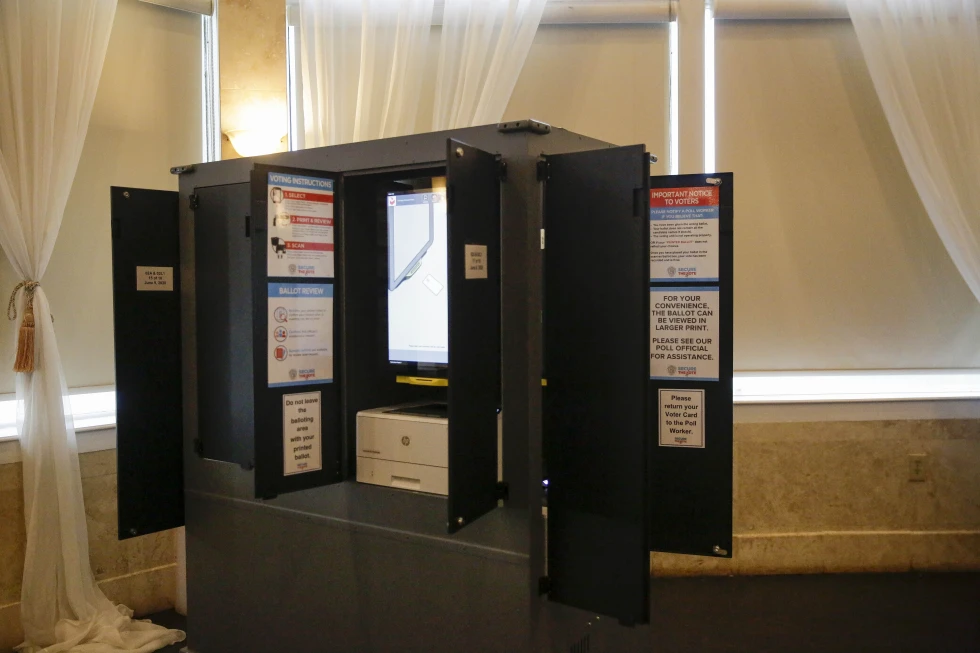US District Judge Amy Totenberg issued a ruling last Friday that supports individuals seeking to replace Georgia’s electronic voting machines with hand-marked paper ballots.
The questionable machines were purchased from Dominion Voting Systems in 2019 and implemented in 2020. Following that year’s presidential election, there was much talk regarding the machines’ susceptibility to hacking and some people even claimed the machines helped President Joe Biden defeat former President Donald Trump.
Mike Lindell, CEO of MyPillow and a fierce supporter of election fraud claims, described Totenberg’s ruling as “historic.”
“[Evidence] does not suggest that the Plaintiffs are conspiracy theorists of any variety,” wrote Totenberg. “Indeed, some of the nation’s leading cybersecurity experts and computer scientists have provided testimony and affidavits on behalf of Plaintiff’s case in the long course of this litigation.”
One example is a report by University of Michigan computer science professor J. Alex Halderman, who explained how voting data could be manipulated any individual who gained access to the equipment. The US Cybersecurity and Infrastructure Security Agency confirmed the vulnerabilities outlined in Halderman’s report, but said it had found no proof that such vulnerabilities were ever exploited during an election.
Though Totenberg’s ruling does not mark the end of a trial (but rather confirms that a trial will be held and evidence heard), it is certainly good news for Lindell and others who were ridiculed for doubting the security of Georgia’s touchscreen voting system.
Lindell is currently trying to raise money to help pay his legal bills following a series of defamation lawsuits including a $1.3 billion lawsuit from Dominion Voting Systems. The voting machine manufacturer also sued Fox News and reached a $787 million settlement with the conservative network earlier this year .
The lawsuit which resulted in Totenberg’s ruling was filed in 2017 by individual voters backed by the Coalition for Good Governance, an election security advocacy group that insists Georgia’s electronic voting machines have security flaws that violate Americans’ constitutional right to have their votes counted correctly, against Georgia Secretary of State Brad Raffensperger and members of the State Election Board.
The state had requested that a ruling be issued without a trial, but Totenberg (appointed by former President Barack Obama) declined. “The Court cannot waive a magic wand in this case to address the varied challenges to our democracy and election system in recent years, including those presented in this case,” she wrote. “But reasonable, timely discussion and compromise in this case, coupled with prompt, informed legislative action, might certainly make a difference that benefits the parties and the public.”
The trial is scheduled to begin on January 9th of next year. It will be a bench trial, which means no jury will be present.
“[The plaintiffs have] a heavy burden to establish a constitutional violation” linked to the voting machines, warned Totenberg, adding that she does not have the authority to order the state to use paper ballots even if the plaintiffs win the case.
“We look forward to presenting our full evidence at trial and obtaining critical relief for George voters,” said David Cross, an attorney representing some of the individual voters who participated in the lawsuit. “But we hope this decision will be a much-needed wakeup call for the Secretary and SEB, and finally spur them to work with us on a negotiated resolution that secures the right to vote in Georgia.”
Regardless of the outcome, state officials say they don’t have time to fix the vulnerabilities in the voting machines’ software before the 2024 election.
Sources:
Mike Lindell Cheers Judge’s ‘Historic’ Ruling as Vindication
Trial set for election security case against Georgia’s voting machines
Constitutional challenge to Georgia voting machines set for trial early next year
